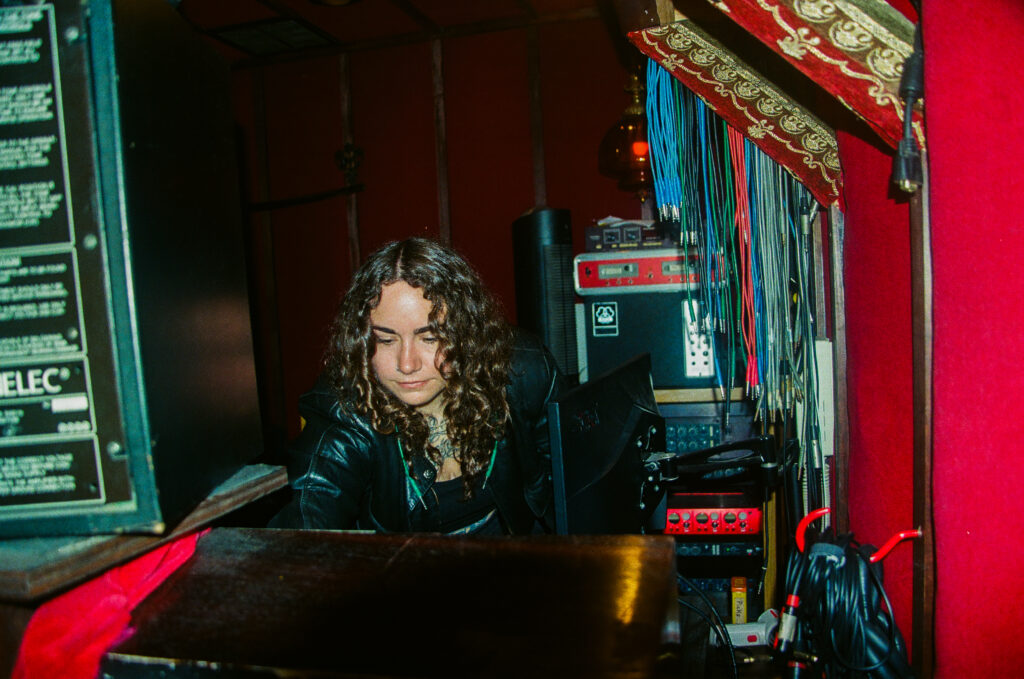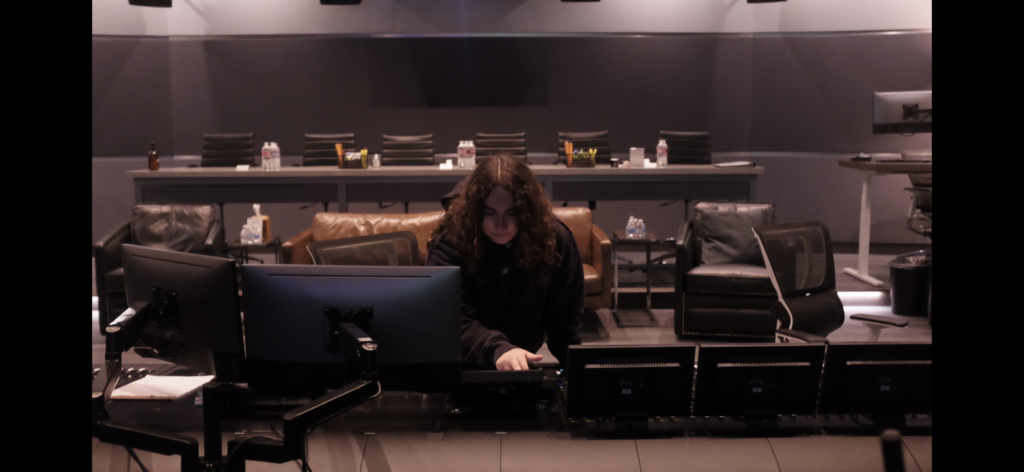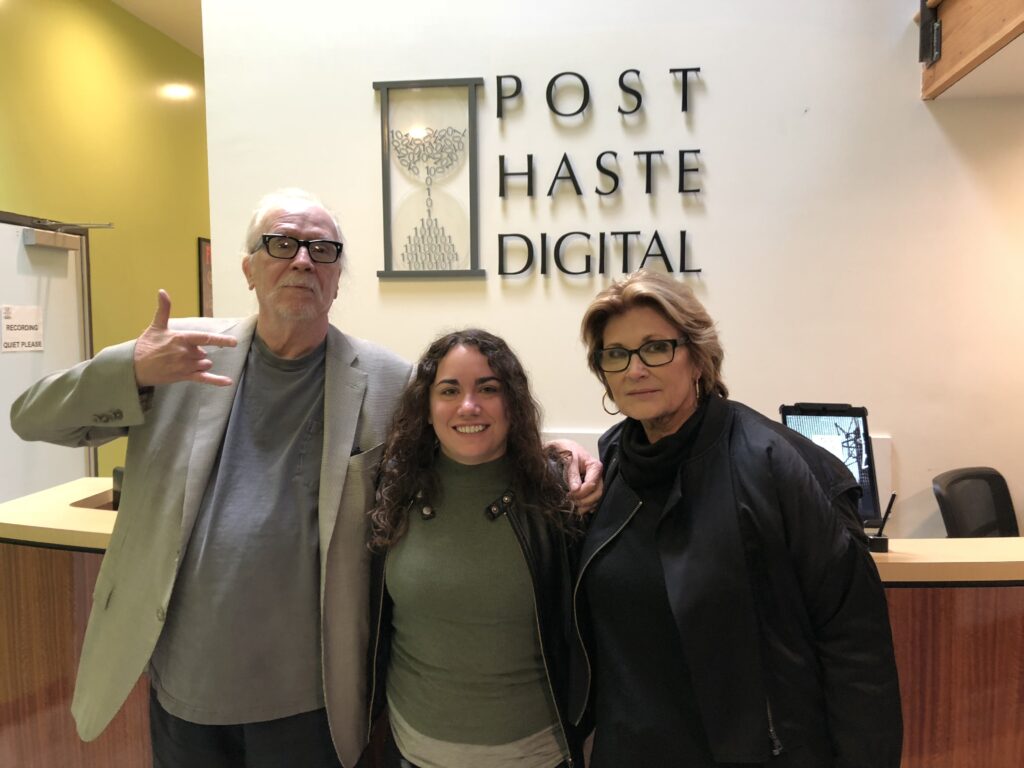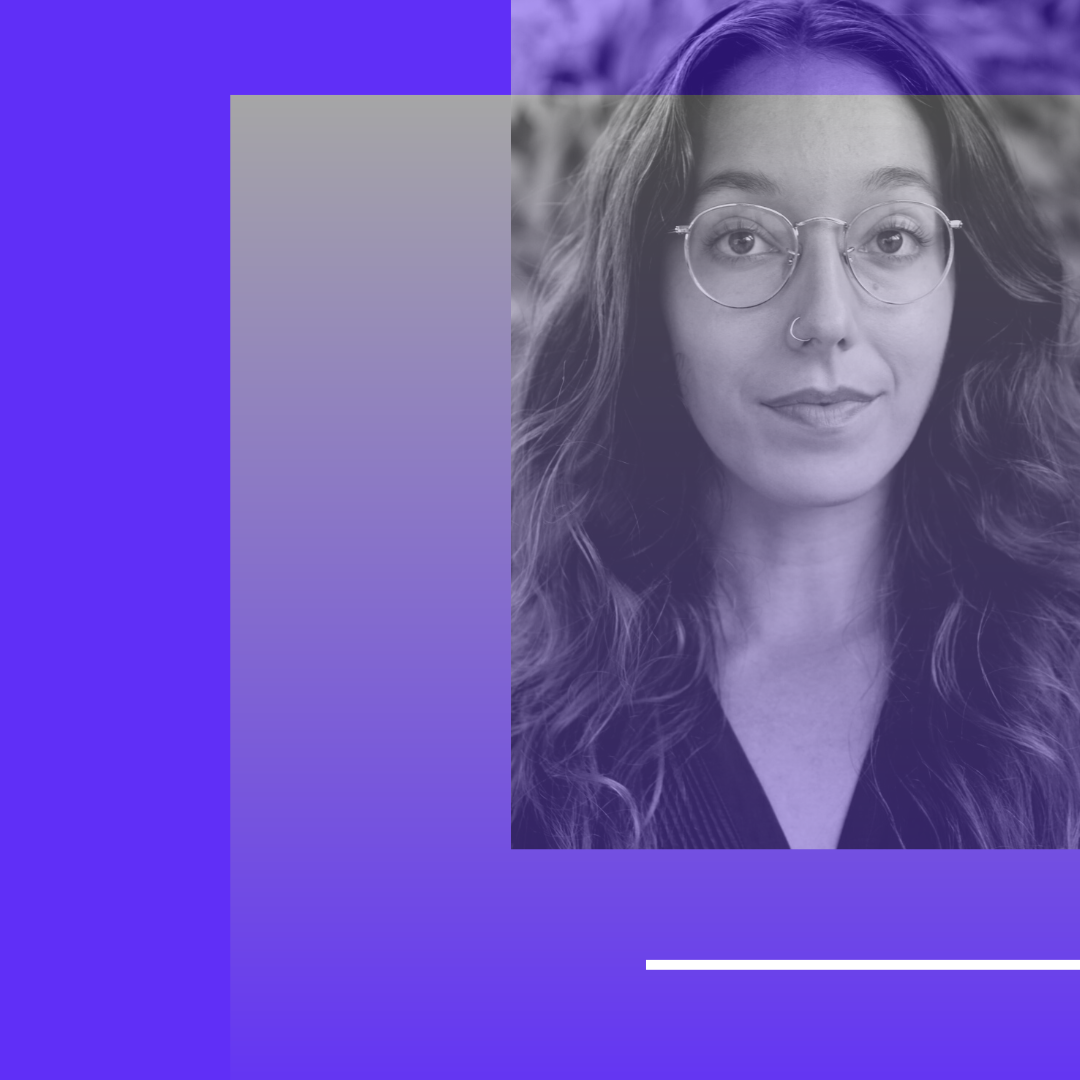
Ally Hustings – Re-Recording Mix Technician, ADR Mixer, and Dialogue Editor
Ally Hustings is an accomplished audio professional with 14 years of experience working across film, television, and AAA video games. Wearing multiple hats as a Re-Recording Mix Technician, ADR Mixer, and Dialogue Editor, Ally brings both technical precision and creative insight to every project she touches.
Ally’s passion for sound began in high school, sparked by a love of movies, music, and the behind-the-scenes magic that shapes them. While she was never drawn to performing herself, she was captivated by the emotional power of sound—how it sets tone, builds tension, and transforms a scene. As a teenager, she experimented with editing home videos on glitchy software, where she began to understand how placing different sounds and music could completely change a story’s feel.
She honed her skills at the Institute of Production and Recording in Minneapolis, earning an Associate of Applied Science degree in Audio Production and Engineering with a focus on post production. The program equipped her with a strong foundation in audio engineering, production, and sound design for visual media.
Today, Ally thrives in the fast-paced and ever-evolving world of post-production, with credits spanning major studios and game developers. Whether she’s mixing dialogue for film, recording for immersive audio for a blockbuster game, or fine-tuning ADR for a dramatic TV moment, Ally is dedicated to making sound a seamless, powerful part of storytelling.
Career Start
How did you get your start?
I had several internships and all of them were unpaid; on my own time and not for college credit. I started by interning at a music recording studio while in college where I
made coffee, took out the trash, washed dishes, cleaned toilets and bathrooms that were shared with another company, sharpened pencils, upkept the studio and tried to be as helpful as possible. In return I learned about acoustics, session prep, tracking and mixing, equipment care and maintenance including mics, preamps, consoles, plate reverbs, and tape-oping.
Three days after my graduation ceremony I packed up my belongings and moved to Los Angeles. I took more internships that had similar responsibilities to my prior experience. These opportunities were split between music and post production facilities while working full time in food service to support myself. At one point I had four jobs I worked between for 6 days a week for a year. I started my mornings alternating between one of three internships and would go immediately to a restaurant until around 2:00 a.m. to close.
One day I was called to fill in for a celebrity VO session because the previous person quit. It turned out to be an ADR session and everyone was pleased with my work, which was the start of my career as an ADR Mixer.
How did your early internships or jobs help build a foundation for where you are now?
They helped me lay the foundation of my professional community and I still frequently cross paths with colleagues from my beginning days!
What did you learn interning or on your early gigs?
I learned what being a strong, contributing member of a sound team looks like in different ways and the importance of Best Practices.
Did you have a mentor or someone that really helped you?
I have been exceptionally blessed to cross paths with professional mentors and meet dear friends who’ve gone above and beyond to support me. I remember every person who gave me a couch to crash on.
Career Now
What is a typical day like?
I’m generally busiest at the start and end of my day. As a Mix Technician, I arrive at the stage ahead of the crew and prepare the Pro Tools sessions and consoles. Depending on the schedule for the day we may be working in multiple episodes or reels that need to be prepared ahead of time. Because there are several Pro Tools systems communicating with each other I ensure they’re connected properly and test signal routing, as well as troubleshoot software and hardware issues if they arise. Additionally I transfer and import any needed assets and picture files while getting any remote attendees connected.
It’s my responsibility that the final mix stems and printmaster assets are adhering to distributor specifications with correct formatting, labeling, and are backed up. I stay in frequent communication with project crew members including the Mixing, Editorial, Music, Engineering, and Data teams.
When I work in Game Dialogue and ADR there are a lot of overlapping principles and some differences in execution, equipment and specs. Game Dialogue does include ADR, and can also include VO and Performance Capture dialogue recording.
How do you stay organized and focused?
I use a combination of calendars, spreadsheets, documents, hand-written notes (I keep a note-pad per project), separate email addresses (depending on the type of job), and an album on my phone for work-specific photos such as consoles/patch bays. I’m always taking down notes and making to-do lists. I always prefer thorough preparation.
What do you enjoy the most about your job?
I love the energy and spontaneity that comes with team collaboration! There’s so much to learn and it’s satisfying to be with teams that are committed to pushing the form forwards.
What do you like least?
Inevitably there have been important events or holidays with loved ones that get missed. Sometimes the work-life balance can get skewed.
What if any obstacles or barriers have you faced?
It’s definitely a competitive industry in a HCOL city where prior to streaming there were limited/slower opportunities for advancement.
Advice you have for other women and young women who wish to enter the field?
I would advise that people consider how the career they’re seeking aligns with the type of lifestyle they want to live. Do you want to work in person or remote? Are you okay with traveling, and if so how much? Are you okay with a gig based structure or a M-F? Late nights, rotating hours, or a 9-5? It’s okay to not know the answers right away, and even if you do your preferences can change over time.
I would encourage those wishing to enter the field to seek out and say yes to as many opportunities as they can to learn more about what suits them best. Every opportunity is a chance to grow and refine your skills. Seek feedback, follow technology changes, and research how and why applicable industry standards have been set.
Remember that every day you wake up and choose how you treat other people. Expect and become comfortable with excelling in your role under imperfect circumstances.
Must have skills?
Emotional intelligence and interpersonal skills such as self awareness, the ability to seek and receive feedback, curiosity, critical listening, attention to detail, adaptability, dependability, discipline, a positive attitude, and a collaborative spirit. You can be the smartest person in the room but if you’re rude and combative to others they will not be inviting you back.
Favorite gear?
The Sony MDR-7506 headphones are my favorite to edit dialogue on. I use an ergonomic Logitech gaming mouse as well.



